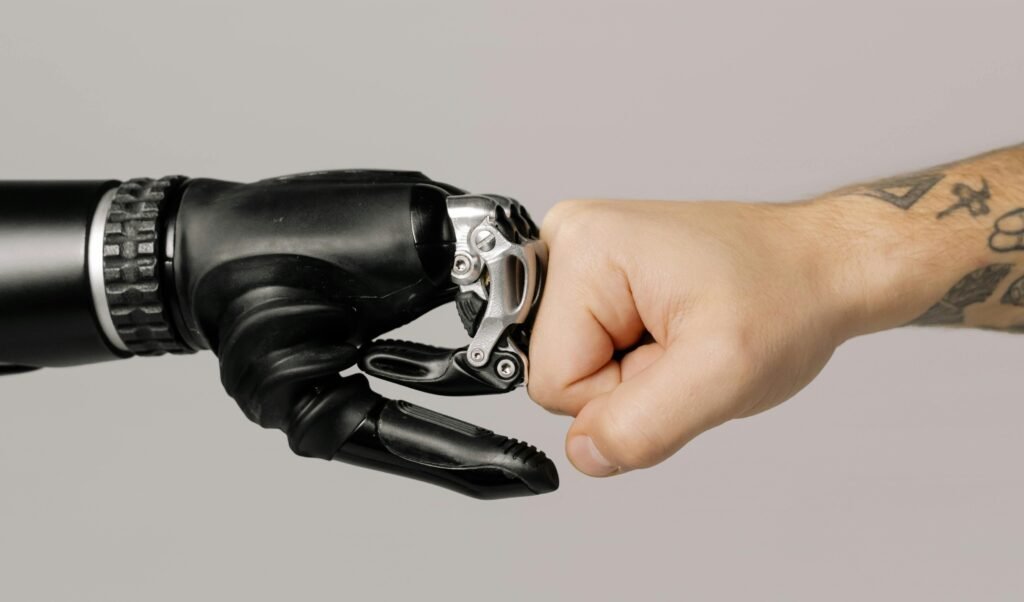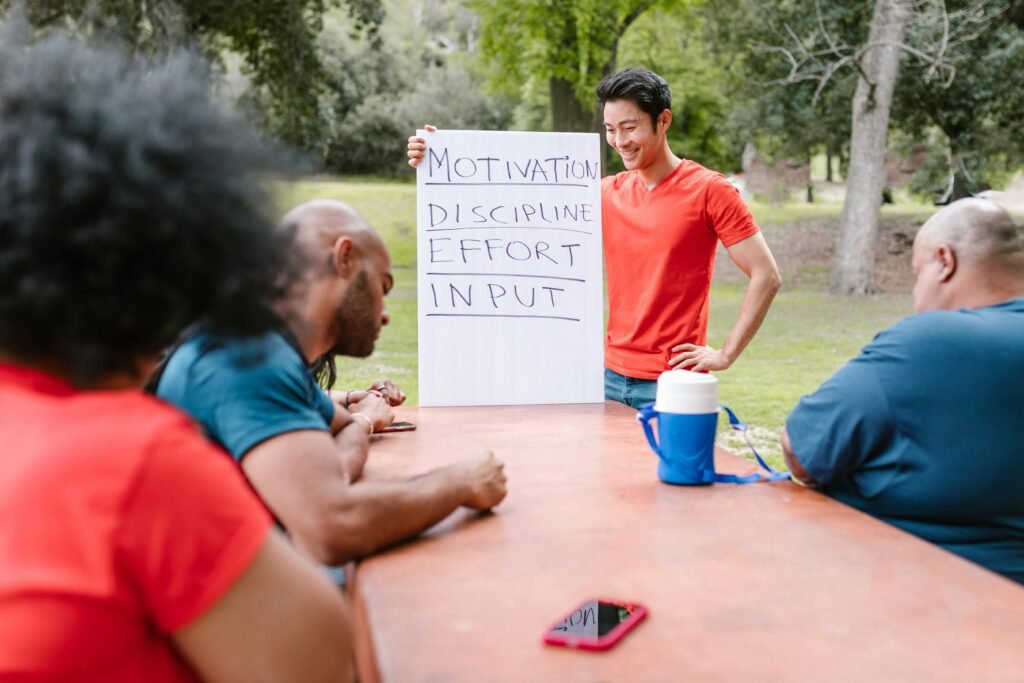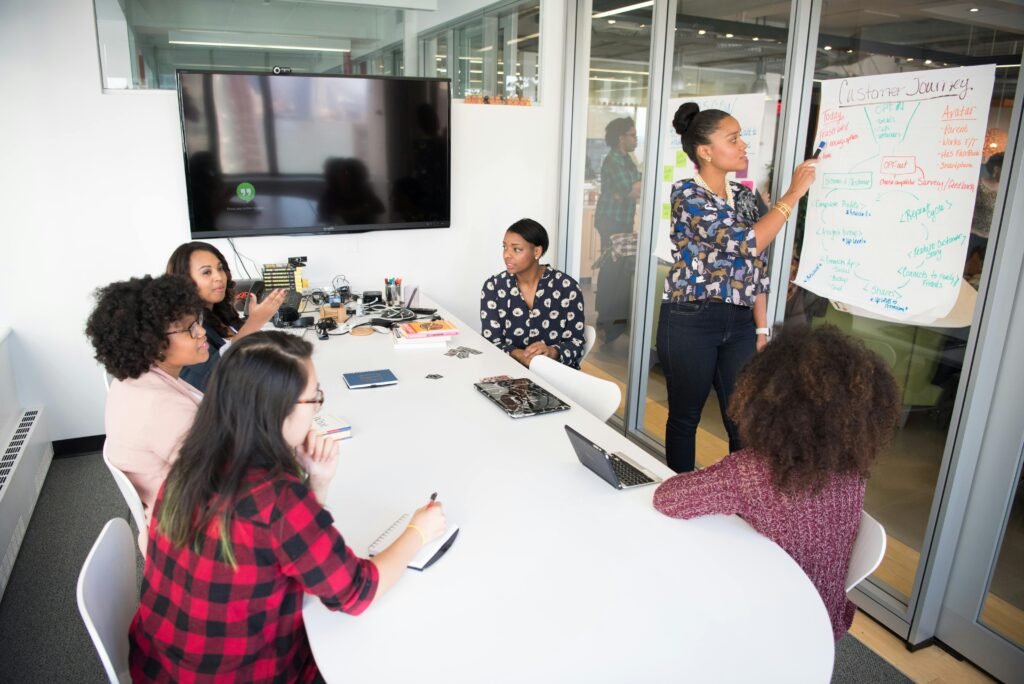
In today’s evolving digital world, soft skills AI can’t replace are becoming more valuable than ever. As automation and artificial intelligence continue to take over repetitive and technical tasks, it is human-centered skills like communication, emotional intelligence, and leadership that truly set professionals apart.
These essential soft skills for career growth are not just important—they’re critical to remain relevant, adaptable, and successful in a world where machines are becoming increasingly capable. This blog explores the top 10 soft skills that will future-proof your career and make you irreplaceable in the age of AI.
1. Communication: The Key to Human Connection

Communication remains a core strength that no machine can replicate. While AI can generate responses or reports, it lacks the emotional nuance and personal understanding that comes from real human interaction.
- Clear verbal communication fosters trust in teams.
- Non-verbal cues like tone, eye contact, and gestures build deeper connections.
- Written clarity ensures that your ideas are understood across mediums.
This is one of the soft skills AI can’t replace, especially in jobs requiring empathy, persuasion, or teamwork.
2. Emotional Intelligence: Understanding Beyond Logic

Emotional intelligence, often called EQ, is the ability to recognize and manage your own emotions while being empathetic to others.
- Builds stronger workplace relationships
- Resolves conflicts smoothly
- Promotes emotional stability and resilience
This is a soft skill for career growth that influences job satisfaction and long-term leadership potential.
3. Critical Thinking: Analyzing the Unanalyzable

Machines provide data—but critical thinking helps you make sense of it.
- Analyze complex problems
- Challenge assumptions
- Make smart, ethical decisions
AI lacks the ability to question, reflect, and evaluate outcomes with a human perspective. That’s why this is a core soft skill AI can’t replace.
4. Creativity: Original Thinking, Human Only

Creativity means developing new and original ideas. It goes beyond logic—it’s about imagination and innovation.
- Problem-solving in unique ways
- Designing new solutions or content
- Thinking beyond patterns
AI may replicate existing styles, but true creative thought comes only from human insight.
5. Leadership: Guiding with Empathy and Vision

Leadership is more than assigning tasks. It’s about inspiring, guiding, and motivating others.
- Drives team growth and morale
- Solves conflicts with compassion
- Makes ethical decisions under pressure
AI can’t lead people emotionally. Soft skills for career growth like leadership keep organizations united and moving forward.
6. Adaptability: Thriving Amidst Change

In fast-changing environments, adaptability is key.
- Embrace new tools and technologies
- Respond quickly to challenges
- Stay resilient in uncertainty
Unlike AI, humans can adapt strategies based on unexpected emotions or events, making this a top soft skill AI can’t replace.
7. Conflict Resolution: Handling Emotions with Empathy

Conflicts happen at work. But solving them peacefully is a human ability.
- Listen actively
- Understand different perspectives
- Find mutual solutions
AI cannot replace the emotional sensitivity needed in tough conversations. Conflict resolution is vital for workplace harmony and success.
8. Teamwork: Working Together Beyond Code

Humans thrive in teams—machines don’t.
- Share responsibilities
- Support and collaborate
- Give and receive feedback
Great teams need emotional intelligence and respect, both of which are soft skills for career growth AI can’t deliver.
9. Time Management: Setting Priorities with Purpose

Time management isn’t just about checking tasks—it’s about prioritizing work that creates the most value.
- Organize tasks effectively
- Balance work-life better
- Deliver results efficiently
AI might schedule tasks, but only humans understand intentional priorities, goals, and emotions behind deadlines.
10. Ethics & Integrity: The Moral Compass

Machines can follow rules—but they can’t make ethical decisions or feel guilt.
- Make honest choices
- Take responsibility
- Uphold fairness and respect
Soft skills AI can’t replace include integrity—because trust and values are always human strengths.
How to Build and Improve These Skills
Improving soft skills is a continuous process. You can:
- Practice daily reflection to improve emotional awareness
- Join community discussions or group activities to enhance communication
- Take self-paced learning programs to improve adaptability and decision-making
- Engage in group challenges that simulate teamwork and leadership
- Keep a feedback journal to track progress
These strategies help you grow soft skills for career growth at any stage of your professional life.
Real-Life Examples of Soft Skills at Work
🔹 A team leader resolves a scheduling issue with empathy and communication rather than conflict.
🔹 A designer pitches a creative idea that saves the company time and money.
🔹 A professional adapts quickly when company tools change and helps others adjust too.
These cases show how essential human skills outperform technology every day.
Conclusion: Human First, Always

The future belongs to those who sharpen their soft skills AI can’t replace.
Machines may learn faster, but they lack human warmth, ethics, and connection. If you master these top 10 soft skills, you won’t just future-proof your career—you’ll thrive in it.
Stay empathetic. Stay creative. Stay human.
We’d love to hear from you!
Which soft skill do you think is most important in the age of AI?
Drop your thoughts in the comments below and share your experience.


